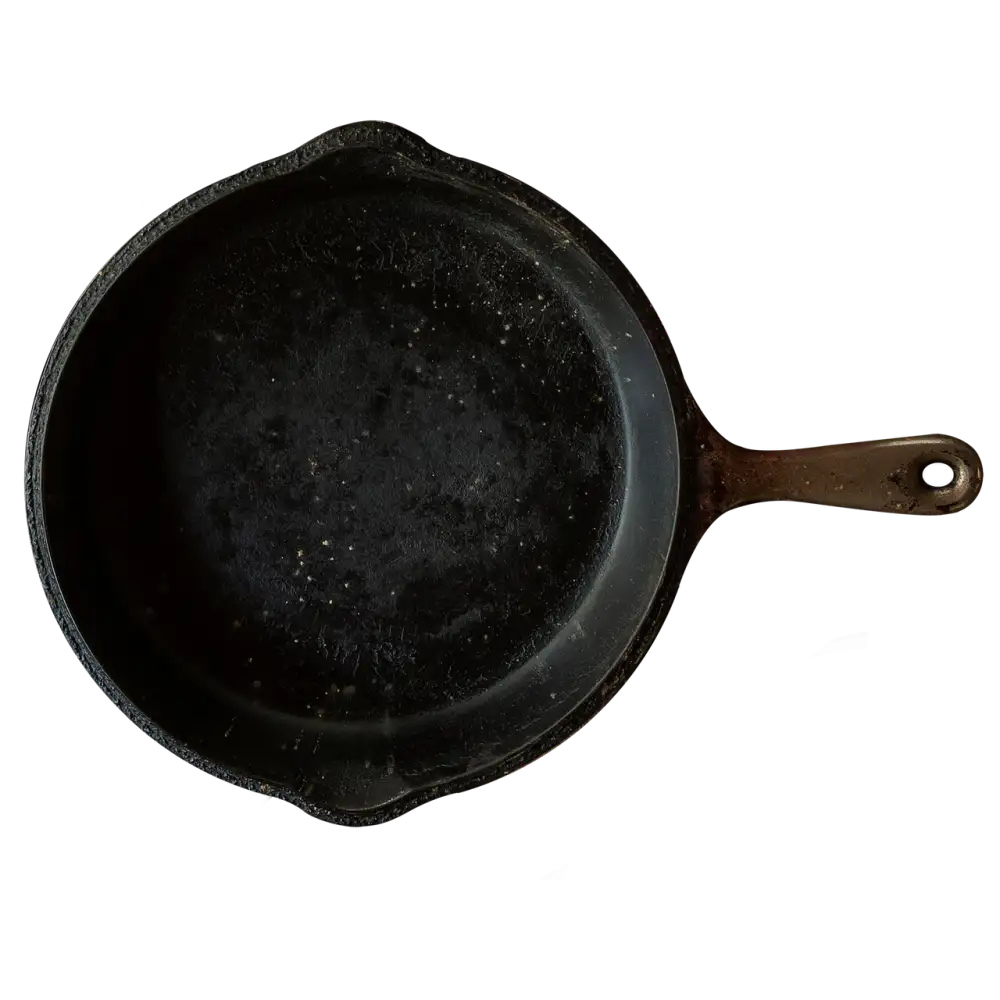Expert Tips for Cleaning Your Cast Iron Skillet Like a Pro

- Gather materials: coarse salt, sponge, dish soap, paper towels.
- Rinse skillet with hot water, avoiding soap.
- Sprinkle salt on skillet, scrub with sponge to remove food residue.
- Rinse skillet with hot water, dry thoroughly with paper towels.
- Heat skillet on stovetop to ensure complete drying and prevent rust.
- Store skillet in a dry place to maintain seasoning.
Gather materials: coarse salt, sponge, dish soap, paper towels.
To clean your cast iron skillet like a pro, start by gathering the necessary materials: coarse salt, a sponge, dish soap, and paper towels. These items will help you effectively remove any food residue without damaging the skillet's seasoning. Coarse salt acts as a gentle abrasive, while the sponge provides scrubbing power. Dish soap should be used sparingly to avoid stripping away the skillet's natural oils. Finally, keep paper towels handy for drying the skillet thoroughly after cleaning. By having these materials on hand, you'll be ready to tackle any mess with ease and maintain your skillet in top condition.
Rinse skillet with hot water, avoiding soap.
After cooking with your cast iron skillet, it's important to properly clean it to maintain its seasoning. Start by rinsing the skillet with hot water, avoiding soap. Soap can strip away the skillet's seasoning, which is essential for a non-stick surface and flavor enhancement. Instead, use a sponge to gently scrub off any food residue. The hot water will help loosen any stuck-on bits without compromising the skillet's seasoning.
Sprinkle salt on skillet, scrub with sponge to remove food residue.
To effectively clean your cast iron skillet, sprinkle a generous amount of coarse salt onto the surface. The coarse texture of the salt helps to scrub away any stubborn food residue without damaging the seasoning of the skillet. Using a damp sponge, scrub the salt in circular motions, focusing on areas with stuck-on food particles. The abrasive action of the salt will help lift off any remaining debris, leaving your skillet clean and ready for the next use.
Rinse skillet with hot water, dry thoroughly with paper towels.
After scrubbing the skillet with salt to remove any food residue, it's crucial to rinse it thoroughly with hot water. This step helps to remove any remaining salt and debris from the surface of the skillet. Once rinsed, use paper towels to dry the skillet completely. It's important to ensure that no moisture is left on the skillet as this can lead to rusting over time. Proper drying also helps maintain the seasoning of the cast iron, ensuring its longevity and performance in your cooking endeavors.
Heat skillet on stovetop to ensure complete drying and prevent rust.
After rinsing your cast iron skillet with hot water and drying it thoroughly with paper towels, the next step is crucial for preventing rust. To ensure complete drying, place the skillet on a stovetop over low heat. Allow the residual moisture to evaporate completely, which helps prevent any rust from forming on the surface of the skillet. This step also helps to maintain the seasoning of the cast iron, ensuring that your skillet remains in top condition for future use.
Store skillet in a dry place to maintain seasoning.
To maintain the seasoning of your cast iron skillet, it is essential to store it in a dry place. Moisture can cause rust to develop on the skillet, which can damage the seasoning and affect the flavor of your food. Store the skillet in a cool, dry place away from any sources of moisture, such as sinks or dishwashers. You can also place a paper towel inside the skillet to absorb any excess moisture and help keep it dry. By storing your cast iron skillet properly, you can ensure that it remains well-seasoned and ready for use whenever you need it.
Published: 06. 05. 2024
Category: Food



